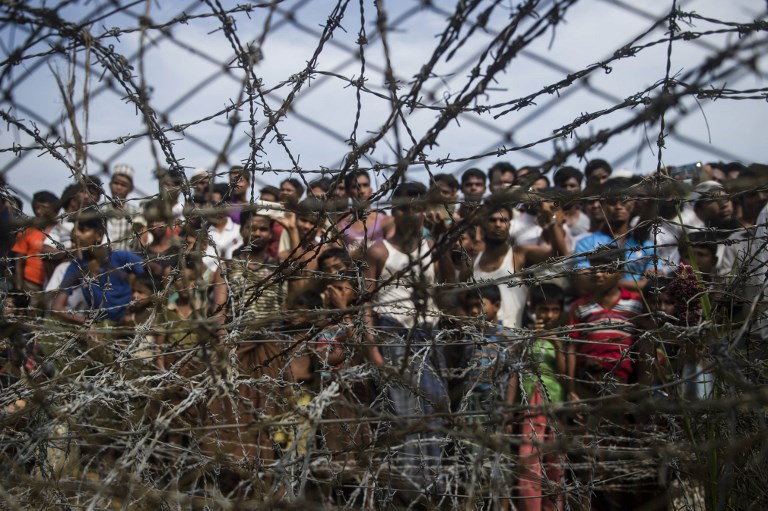The World Bank is considering granting a $100 million loan to Myanmar’s Ministry of Agriculture and the State Counselor’s Office to implement a “Rakhine Recovery and Development Support Project”. But rather than address the violence against Rohingya Muslims that has driven hundreds of thousands of them from the country, activists warn the plan could make the bank complicit in crimes against the persecuted minority.
“The government is implementing apartheid against the Rohingya, and now it looks like the World Bank is offering to pay for it,” Mark Farmaner, director of Burma Campaign UK told Coconuts Yangon.
“The problem is that the government itself is implementing illegal discriminatory policies against the Rohingya. The World Bank should not be funding the government’s projects in Rakhine State at the same time the government discriminates against part of the population of that state,” he continued.
“The World Bank risks complicity in government policies of discrimination, which contribute to the ongoing genocide of the Rohingya.”
Plans for the Rakhine Recovery and Development Support Project were revealed in a paper from the international monetary institution published in March. The document fails to mention the plight of the Rohingya Muslims, 800,000 of whom have been driven out of the northwestern state of Rakhine after a brutal military campaign razed entire villages and killed and maimed thousands of civilians, including women and children.
In the aftermath of the brutal crackdown, the Myanmar government has taken decisive steps to make their return all but impossible by building new structures on top of flattened villages, according to a special Reuters investigation.
In its “recovery project” document, however, the World Bank describes the crisis only as “inter-communal violence” caused by “tensions between the ethnic Rakhine Buddhist and Muslim communities.”
Rights advocates have warned international development institutions against blindly moving into Rakhine state, given the Myanmar government and military’s refusal to take meaningful action redressing the plight of the Rohingya.
“The World Bank is being poorly advised if they think they can provide loans to Myanmar’s efforts in Rakhine state without getting fully entangled in the government’s complicity in crimes against humanity and genocide against the Rohingya,” Phil Robertson, Human Rights Watch Asia Division deputy, told Coconuts Yangon.
“The NLD government’s role in covering up what the Tatmadaw did to the Rohingya, and their effort to deny international accountability, should be a red light for the World Bank to go into Rakhine state,” he added.
Rights activists aren’t the only ones issuing such warnings. The UN Independent International Fact-Finding Mission on Myanmar (FFM) has urged the international community to isolate Myanmar’s military financially by severing all financial and other forms of support to the Tatmadaw (the Myanmar military).
Members of the FFM said that their meetings have further strengthened their belief that the Tatmadaw has “over time committed similar atrocities against many of the ethnic groups living within the borders of Myanmar.”
“Due to the gravity of the past and continuing violations, attention must be given to the political, economic and financial ties of the Myanmar military – to identify who and what should be targeted so we can cut off the money supply as a means of increasing the pressure and reducing the violence,” Christopher Sidoti, a member of the mission, said in the statement.
Burma Campaign UK has already taken steps to expose the Myanmar military’s business links, publishing “The Dirty List” of international companies currently engaged in business with the Tatmadaw in December as well as a list of international companies involved in human rights violations or environmental destruction in the country.
Shaming and underscoring the legal pressure companies doing business with the Tatmadaw face is a key facet of the campaign, the group’s Farmaner said.
“Companies still doing business with the military are funding the human rights violations the military commits. Aside from the moral case for not doing business with the military, they are opening themselves up to potential legal action and huge damage to their reputation.”




